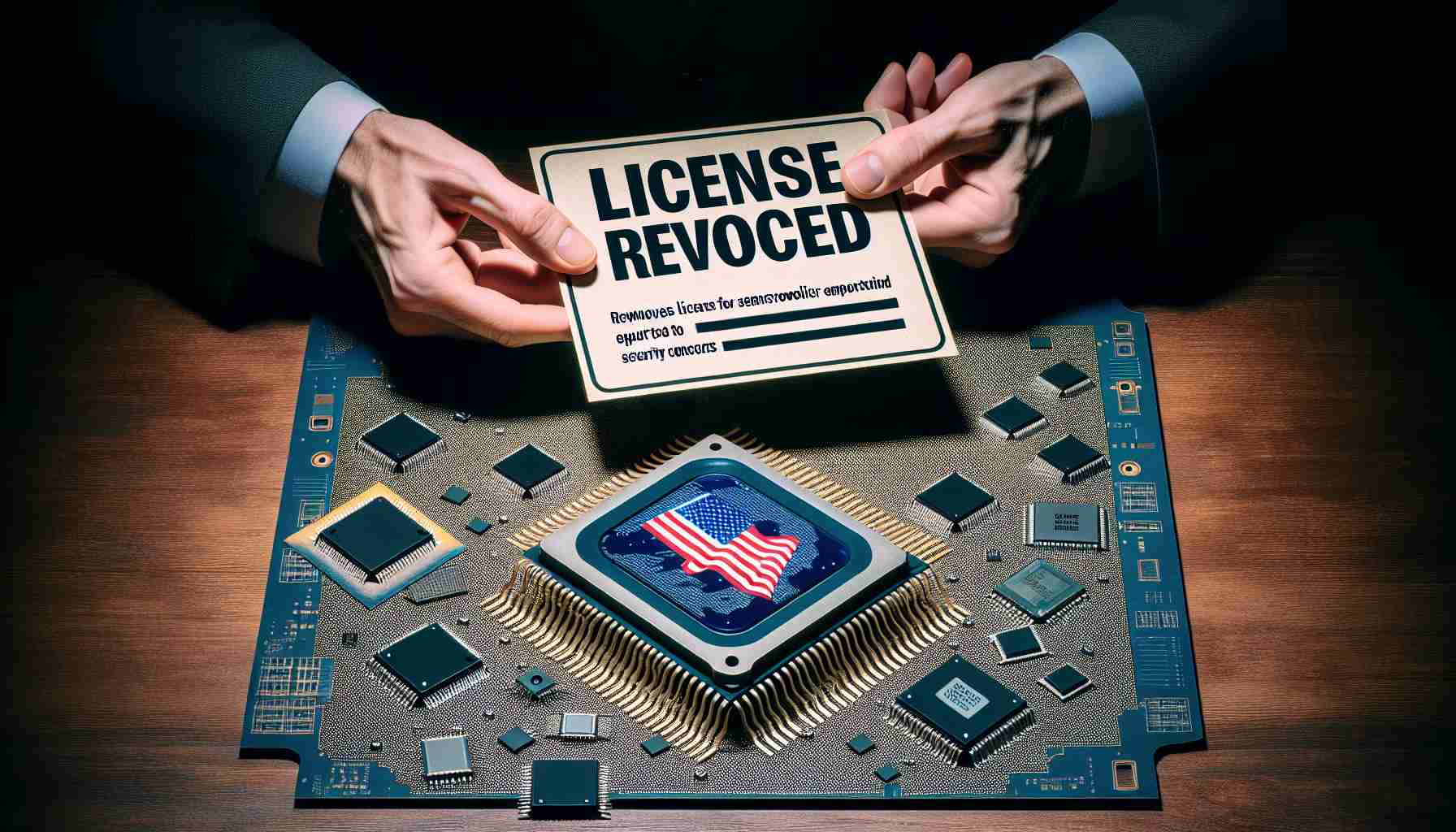In a turn of events impacting the technology and trade nexus between the United States and China, the US government has rescinded several licenses granted to firms for exporting semiconductors to Huawei Technologies, the Chinese telecom giant. Effective immediately, these revoked licenses halt the shipment of critical technology components, such as chips, which are essential to Huawei’s product development, including their laptops.
This decisive action follows the controversy spurred by Huawei’s recent unveiling of the MateBook X Pro, an AI-powered laptop that runs on Intel’s latest chipset. The product’s release sparked disapproval from US Republican representatives concerned with national security and technology transfer issues. They claimed that the laptop’s launch signaled the Commerce Department’s implicit endorsement of Intel’s sales to Huawei.
The Commerce Department made it clear that certain licenses were indeed revoked, albeit without detailing the precise ones. Multiple parties, including heavyweights in the US legislative body, have been advocating for firmer measures against Huawei, citing national security and protection of American intellectual property.
The revoked licenses could have a significant impact on both Huawei, which depends on chips like Intel’s to power its devices, and on American companies supplying these technologies, as their business engagements with Huawei are critically affected.
Since 2019, following its addition to the US trade restriction list due to espionage concerns, Huawei’s operations have faced severe limitations. Although vendors have been authorized previously to trade with Huawei, involving billions in transactions, these new developments could stifle the company’s technological ambitions.
Despite these restrictions, Huawei continues to showcase growth, particularly in its smartphone sales and smart car components sector. The company’s ability to thrive under stringent conditions has made headlines and stays indicative of their adaptive strategies in navigating global trade and technology constraints.
Key Questions and Answers:
– Why did the US government revoke licenses for semiconductor exports to Huawei?
The US government revoked licenses for exporting semiconductors to Huawei due to national security concerns and issues related to technology transfer. Republican representatives expressed disapproval, particularly after Huawei unveiled a new AI-powered laptop incorporating Intel’s chipset.
– What impact does this revocation have on US companies and Huawei?
The revocation affects US companies that supply semiconductor technology as it limits their business with Huawei. It also affects Huawei’s ability to acquire critical components like chips for their products, potentially hindering their product development and technological advancements.
– What has been Huawei’s response to previous US trade restrictions?
Huawei has showcased resilience by exploring alternative suppliers, diversifying its product lines, and focusing on other sectors like smartphone sales and smart car components, managing to maintain growth despite the restrictions.
Key Challenges and Controversies:
– Balancing National Security and Global Trade: The key challenge for the US government is to protect national security without negatively impacting global trade and the business of American companies.
– Intellectual Property Rights: There is an ongoing concern about protecting American intellectual property when dealing with companies like Huawei that are accused of espionage.
– Strategic Autonomy for Huawei: Huawei’s efforts to reduce dependency on US suppliers by developing its own chipsets and sourcing from other countries pose a challenge to US export control measures.
Advantages and Disadvantages:
Advantages:
– Protection of National Security: Revoking licenses is part of safeguarding US national security interests against potential espionage and technology theft by foreign entities.
– Intellectual Property Safety: It ensures that American intellectual property rights are not compromised through technology transfers to companies like Huawei.
Disadvantages:
– Impacts on US Suppliers: US companies that supply semiconductors face financial losses due to the restricted ability to sell to Huawei.
– Trade Relations: Such restrictions can lead to further tensions in US-China trade relations, potentially leading to retaliatory actions by China.
For related and reliable information on these developments, you might consider visiting major news outlets or official government websites. Below are links to their main domains:
– U.S. Department of Commerce
– Reuters
– Bloomberg
– The Wall Street Journal
Please note that, in order to provide precise information on this rapidly evolving issue, it is advisable to consult these sources directly for the latest updates.
The source of the article is from the blog reporterosdelsur.com.mx
